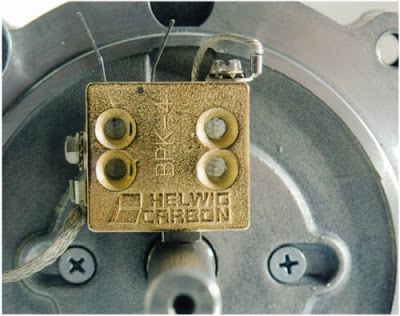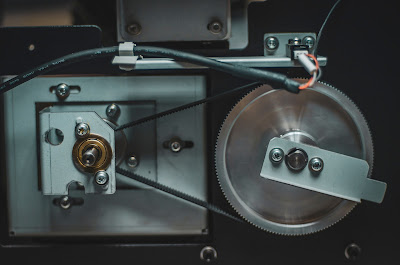What are the key benefits of oil seals?
Oil seals, also known as rotary shaft seals, are essential components used in various types of machinery across many different industries. These seals function as barriers between two systems, preventing lubricants, gases, and fluids from leaking and protecting the internal parts from contamination, corrosion, and damage. Although seemingly small, oil seals play a critical role in the longevity and overall performance of the machinery they are installed in. In this blog post, we will discuss the key benefits of oil seals and how they contribute to the smooth operation and reliability of equipment.
One of the primary benefits of oil seals is their ability to maintain lubricants and prevent leakage. By keeping the lubricants contained within the system, oil seals help reduce friction between moving parts, which can lead to premature wear and breakdown. Additionally, oil seals also serve as a barrier against external contaminants such as dust or dirt, which could cause significant damage to machinery.
1. Oil seals prevent lubricant leakage from machinery and equipment.
One of the key benefits of oil seals is their ability to prevent lubricant leakage from machinery and equipment. This is crucial, as lubrication is essential to the smooth operation of machines and equipment, reducing wear, and providing a barrier against corrosion. The leakage of lubricant can result in costly damage and downtime, which lowers productivity and increases maintenance costs. By effectively sealing fluids, oil seals are designed to maintain the proper levels of lubrication necessary for optimal performance. This means that oil seals play a critical role in ensuring that machinery and equipment perform consistently and efficiently, while reducing the overall cost of maintenance and repairs.
2. They provide protection against contamination and debris that can cause wear and tear on machinery.
Oil seals are an essential component of rotary systems in various industries, most notably automotive, chemical, and manufacturing. One of the primary advantages of oil seals is their ability to provide robust protection against contamination and debris that can cause wear and tear on machinery. Seal solutions are designed to prevent lubricants from leaking out of machinery, but they also work to seal external contaminants out of critical components, such as bearings and gears. These seals offer protection from dust, dirt, moisture, and other hazardous elements that may compromise the efficiency, performance, and longevity of equipment. The result is enhanced reliability, fewer maintenance issues, and improved productivity for companies that depend on the smooth operation of their machinery for their daily operations.
3. Oil seals improve the efficiency and longevity of machinery and equipment by reducing friction and wear.
Oil seals are an essential component in many types of machinery and equipment. One of the key benefits of oil seals is their ability to improve efficiency and longevity by reducing friction and wear. When oil seals are properly installed and maintained, they can significantly reduce the amount of friction between moving parts, which results in less energy being lost as heat. This reduced friction also leads to less wear and tear on machinery components, allowing them to last longer and perform more reliably. Additionally, by preventing lubricants from leaking out and contaminants from entering, oil seals help to ensure that machinery and equipment continue to operate smoothly and efficiently over time. Overall, the use of high-quality oil seals is a critical component in maintaining the performance, longevity, and reliability of machinery and equipment across many different industries.
4. They are designed to withstand extreme temperatures, pressures and speeds, making them suitable for a wide range of applications.
Oil seals are a crucial component in modern-day mechanical systems, offering numerous benefits to users. Among these advantages, one of the most significant is their ability to withstand extreme temperatures, pressures, and speeds. These properties make oil seals an ideal choice for a diverse range of applications, including those found in demanding industries like aerospace and oil and gas. The design and composition of oil seals allow them to create a tight seal between two moving parts, preventing the escape of liquids and gases while keeping contaminants out. Additionally, their durability and resistance to wear and tear make them a cost-effective solution for many industries. Together, these traits ensure that oil seals remain an essential component for virtually any machine that relies on precise and reliable integrated systems.
5. The use of oil seals can reduce maintenance costs and downtime by minimizing the need for repairs and replacements.
One of the key benefits of using oil seals is that they can significantly reduce maintenance costs and downtime associated with repairs and replacements. Oil seals are designed to provide effective and reliable sealing between two surfaces, such as a rotating shaft and a stationary housing, preventing the ingress of contaminants such as dirt, water, and other contaminants that can cause damage to the equipment. By achieving a good seal, oil seals protect the bearings and other components from premature wear and tear, helping to extend their service life. This, in turn, can reduce the need for costly repairs or replacements, resulting in significant cost savings and improved equipment uptime. Additionally, the use of high-quality oil seals can also help to reduce energy consumption by eliminating frictional losses caused by inadequate sealing. Overall, investing in quality oil seals can help businesses achieve longer equipment lifespan, lower operating costs, and improved productivity.
In conclusion, oil seals play a vital role in protecting machinery from harmful contaminants, maintaining proper lubrication, and preventing leaks. They also help extend the lifespan of components, reducing maintenance costs and downtime. Investing in high-quality oil seals can provide long-lasting benefits for machinery and equipment, ensuring optimal performance and efficiency. It is crucial to keep the application-specific requirements in mind while selecting these seals to maximize the benefits derived from them.




Megjegyzések
Megjegyzés küldése